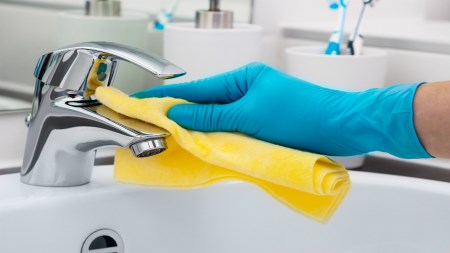While most of us have heard of the term “superbug”, we assume that drug-resistant bacteria only infect those who are in hospitals. There is however increasing evidence that more and more people are being exposed to drug-resistant infections in their own homes.
E. coli is a common bacteria – in fact so common that it lives harmlessly within us. However, there is a strain of E. coli that is not only drug-resistant, but is also highly dangerous and, according to some reports, has led to thousands of deaths in the US alone. The ST131 group of E. coli is particularly virulent and is easily spread from person to person. This bacteria is found in vegetables that have been grown in close proximity to animals, and also in meat products.
Don’t get board
According to a report published by Reuters, cutting boards can be a major source of drug-resistant bacteria. An expert has told Reuters Health: “If other foods go on those boards before the boards get cleaned, or even after they're cleaned if the cleaning isn't 100% effective, the other foods, which may not get cooked, or not cooked as thoroughly as poultry, would likely get contaminated and so could possibly pose an even higher risk of transmission to humans than the poultry products themselves.”
Because of the risk of infection it is highly recommended that people wash their hands after handling meat, raw vegetables and cutting boards. Never simply wipe a cutting board down with a damp cloth, but soak in hot soapy water or better still, put the item in the dishwasher.
While it has often been stated that wooden cutting boards are naturally antibacterial or “self-sterilising”, it’s pretty obvious that even if true, this will not have the desired effect on a bacteria that strong antibiotics cannot contain.
Super-duper it isn’t
So how do bacteria evolve into superbugs? The short answer is antibiotics. The more bacteria are exposed to antibiotics, the higher the chance that they will develop resistance to the drugs. We often take antibiotics for the wrong reasons, including dosing ourselves up when we develop a common cold. A cold is caused by a virus and antibiotics do not affect the outcome whatsoever.
However, it isn't only humans who are exposed to antibiotics. The fact that large numbers of livestock are given antibiotics in an effort to help them grow faster and become larger is of huge concern considering that drug-resistant bacteria originating from both humans and animals can cause life-threatening and sometimes fatal infections.
While common symptoms of infection include stomach cramps, nausea and diarrhoea, severe infections can include urinary tract infections and pneumonia, which on the face of things might not sound that serious – except that the traditional methods of treating these types of illnesses do not work when the patient has become infected with an antibiotic-proof strain.



